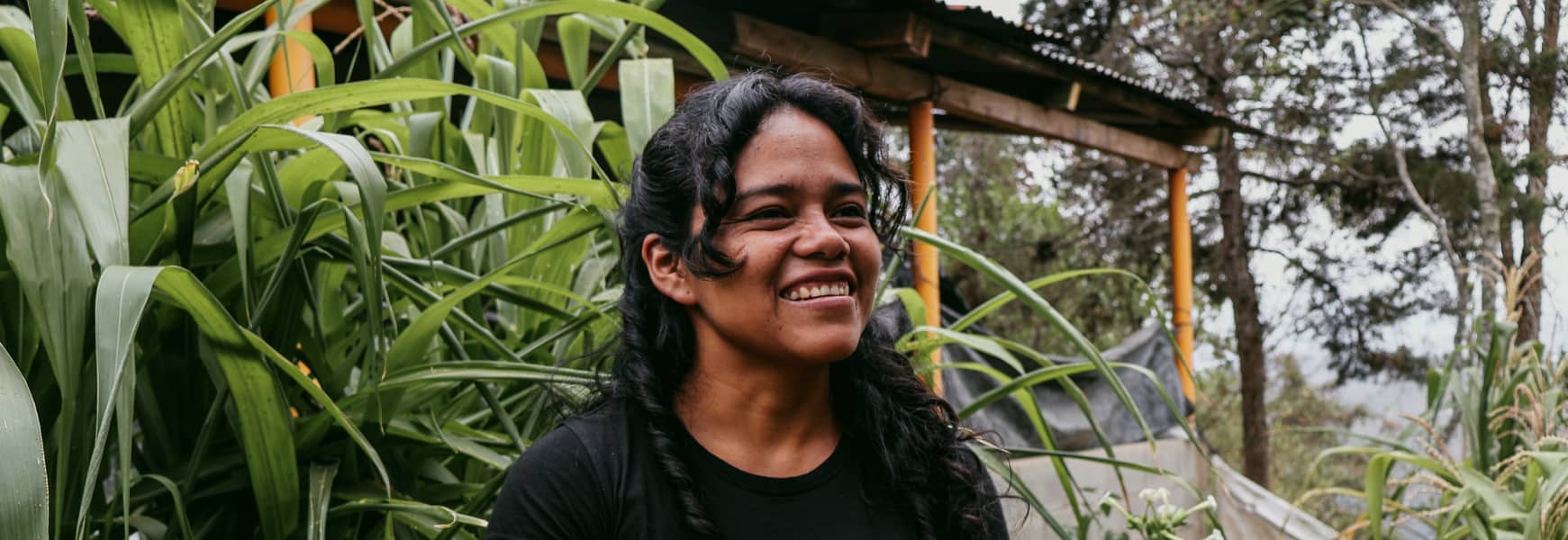Meet Galy, a Farmer Spreading Hope in Guatemala’s Dry Corridor
In the mountains of El Divisadero, where intense heat and prolonged droughts have become the norm, one woman is spreading hope. Galy, a farmer and community leader working with our local partner AGRIDIVI, is transforming the lives of over 80 families in El Divisadero, providing vital support amid a worsening food and climate crisis in Central America’s Dry Corridor.
Galy lives in the arid mountain community of Suquinay, El Divisadero. For years, the region has been grappling with intense heat and prolonged dry spells, plunging millions into harsh life conditions. The situation has been worsening yearly, with Guatemala being among the top 10 countries most at risk from the effects of climate change. But there’s hope. Galy, a woman farmer collaborating with our local partner, Asociación de Agricultores las Ilusiones el Divisadero (AGRIDIVI), is teaching her community to safeguard water, regenerate the land, and produce nutritious food, helping improve the well-being of over 80 families in El Divisadero.
Surviving in Central America’s Dry Corridor
El Divisadero is part of the Dry Corridor, a region that spans Guatemala, Honduras, El Salvador, Nicaragua and the south of Mexico. It is home to “11.5 million rural people who depend on agriculture for their livelihoods”. The area faces critical environmental and social challenges, with irregular rainfall and frequent droughts becoming more severe due to climate change.
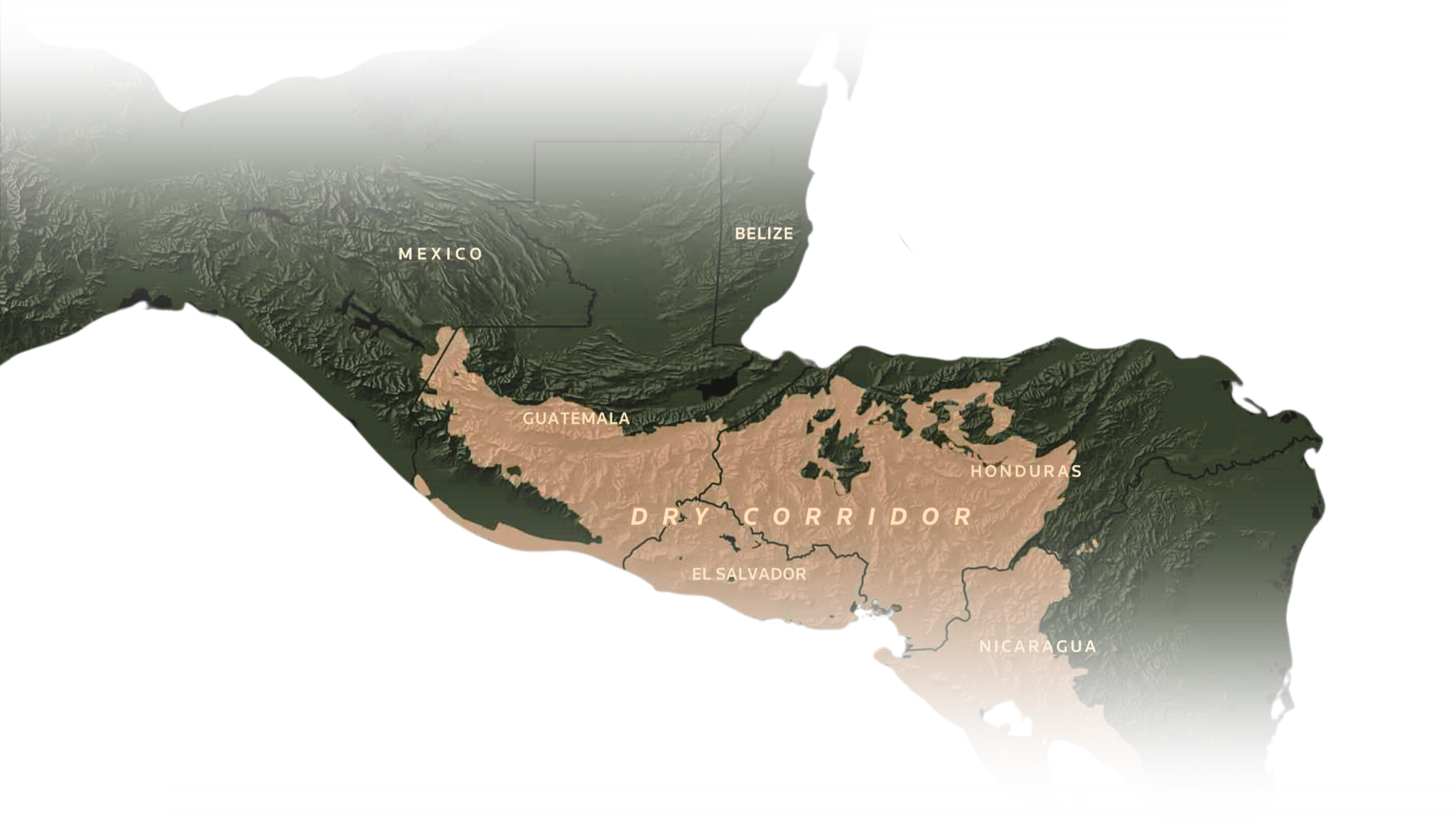
Annual precipitation here is less than 1500 mm, roughly the height of a standard ruler! This limited rainfall, combined with prolonged droughts, extreme weather events, and irregular rainfall patterns, severely impacts water availability and damages crops, leaving farmers and their families vulnerable to hunger. According to this report, famines in Guatemala have increased over the last decade, forcing rural families to migrate in search of a better future.
Poor soil health compounds these issues. Dependence on chemical fertilizers depletes the land’s natural fertility, creating a vicious cycle of diminishing returns. As Galy recalls, “the chemicals only accelerated the processes and damaged the land, which, in the end, is also my home.” Limited access to healthcare and education, especially for women, further strains these communities. Women, often marginalized, have few opportunities to access land or participate in decision-making processes, despite being active participants in the farming sector.
Fortunately, networks like ours are co-creating solutions with farmers. Our local partner AGRIDIVI addresses food insecurity, hunger, and climate crises in the Dry Corridor by establishing grain reserves, teaching agroecological practices, and involving women in key decisions. AGRIDIVI aims to reduce immediate food insecurity and prevent farmers from falling into debt and poverty.
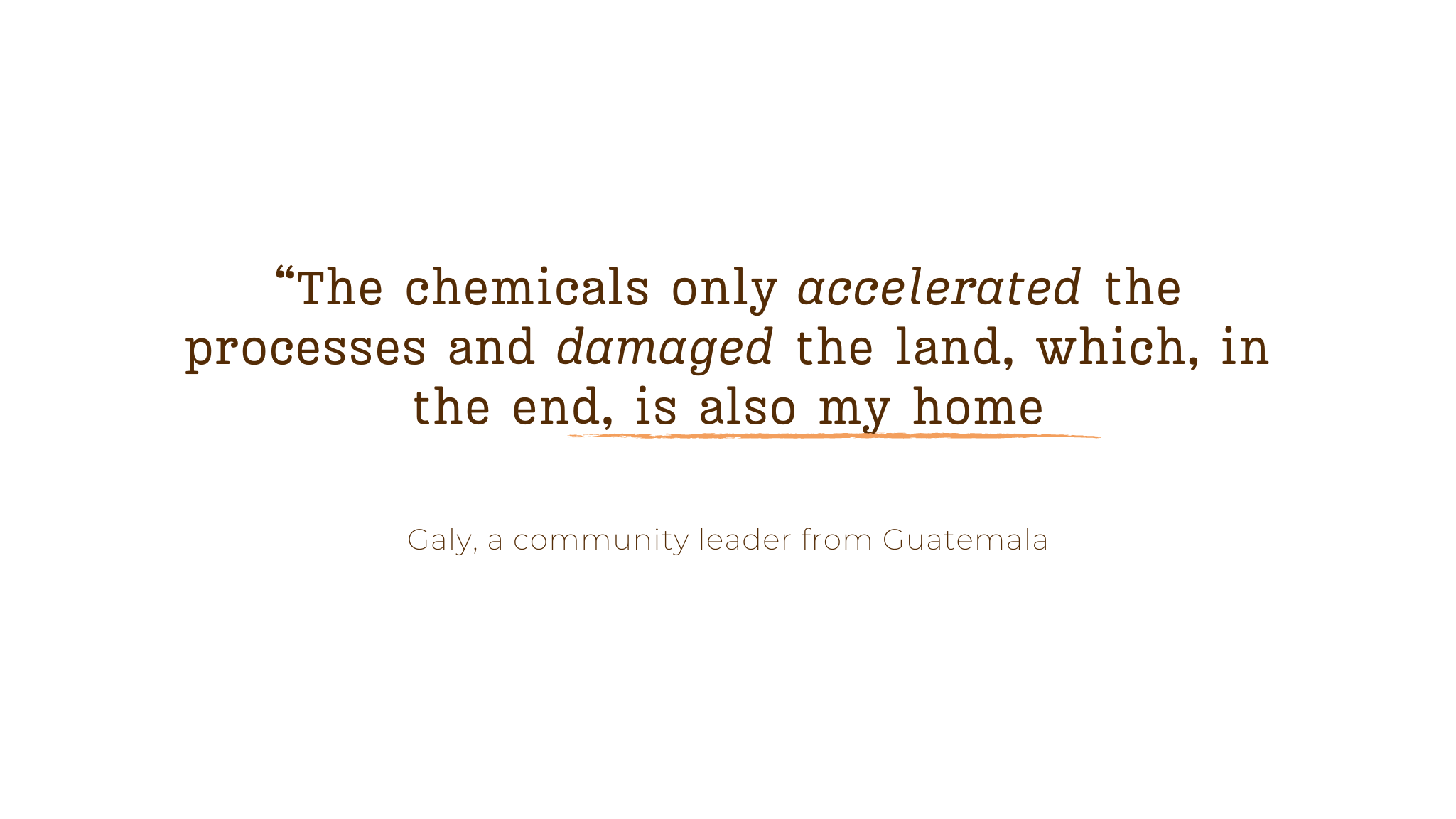
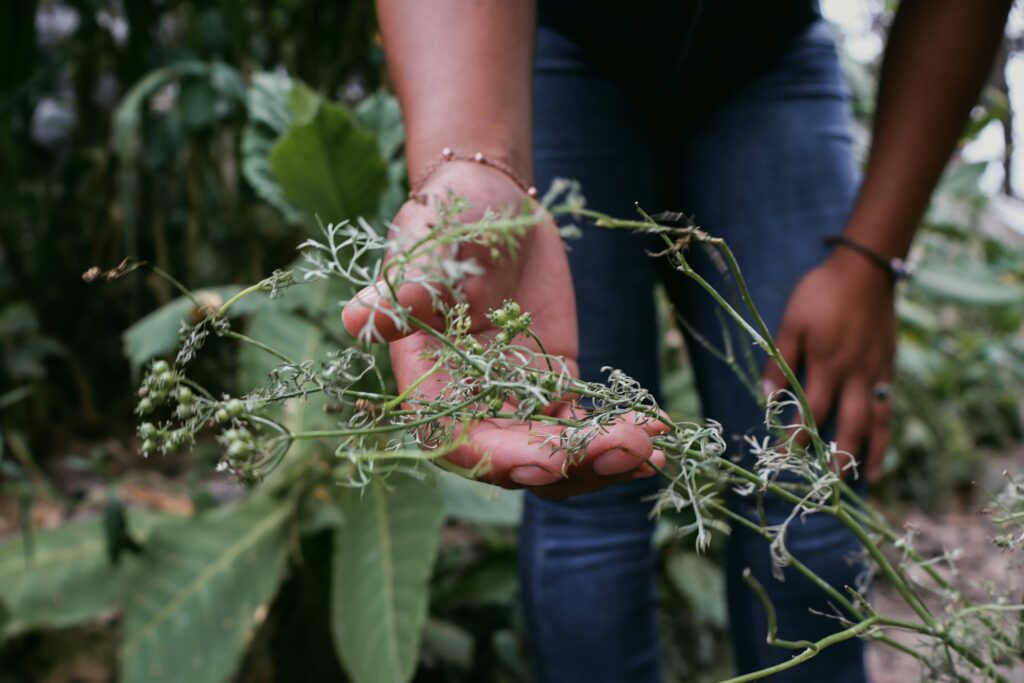
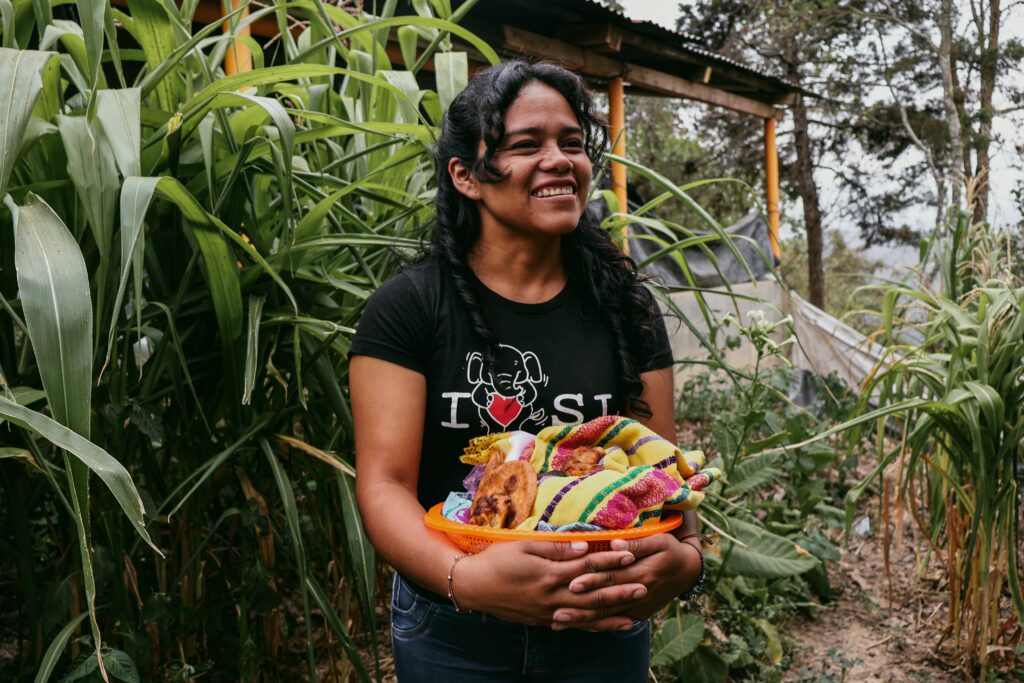
Reconnecting with Mother Earth
Galy met AGRIDIVI’s team in the field three years ago. With their guidance, she realized that the key to overcoming these challenges lay in reconnecting with the land and adopting sustainable practices. She began to understand the importance of soil health and the benefits of natural farming, linking these practices to her deep-rooted values. “We teach food transformation practices, planting, and taking care of Mother Earth because she is the one who always provides us with food,” Galy explains.
This philosophy—working with nature instead of against it—resonated deeply with her, as it mirrored the traditional values that have always existed in her family and are characteristic of rural communities in Guatemala. Her connection to the land and respect for natural resources have been pivotal in promoting sustainable practices in El Divisadero and protecting the environment.
With AGRIDIVI’s support, Galy mastered valuable techniques like organic fertilizer production, soil management practices, and natural food preservation. She also learned to make natural remedies with plants, crucial in a region with limited healthcare access. Implementing these practices, Galy and her community saw their soil regenerate and yields increase. “By working organically, my land began to produce more food,” she notes. Organic fertilizers, understanding soil cycles, and recycling water led to healthier crops and more nutritious food. “Junk food is no longer part of my basket; everything now comes from my garden,” Galy proudly shares.
The shift to organic farming revitalized the land and helped the community enhance their livelihoods. Families learned to cook their food using locally grown ingredients, ensuring that their meals were nutritious and free from harmful chemicals.

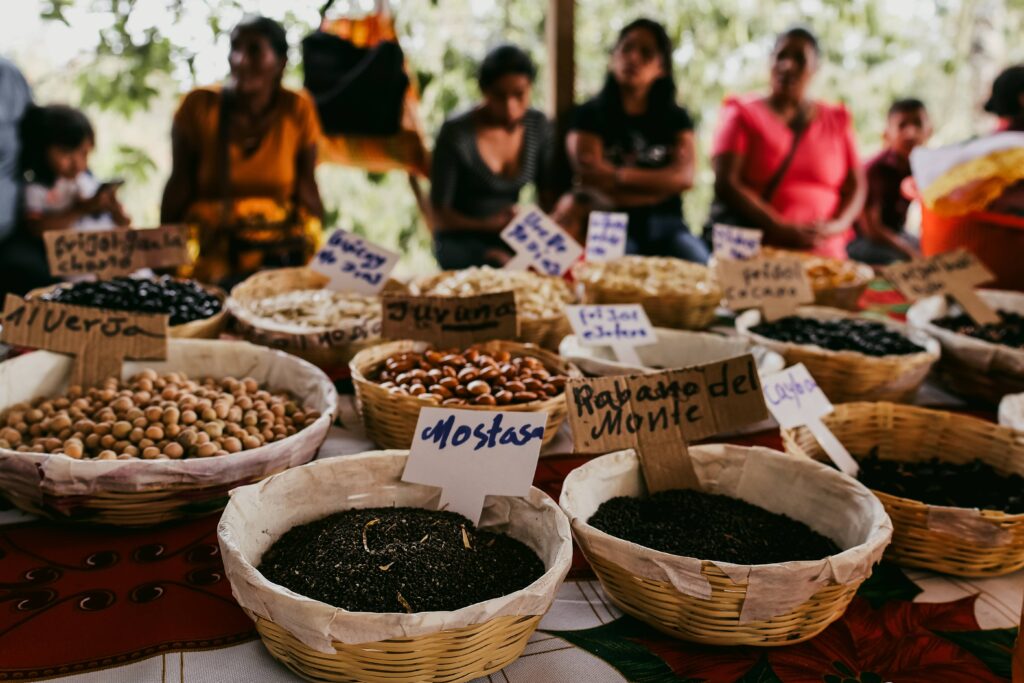
Redefining gender roles in agriculture
Galy’s mission with AGRIDIVI “is to encourage people to have a little awareness about nature and how to take care of ourselves.” She does this by “teaching food transformation practices, planting and taking care of Mother Earth because she is the one who always provides us with food.” She supports 40 families in Suquinay and 45 other families in other communities with “the implementation of practices that care for and regenerate the soil, such as teaching the soil cycles for planting food, making organic fertilizers to have cleaner food, among other actions to strengthen our closeness to the earth.”
Following Galy’s lead, more and more women started participating in activities and trainings organized by AGRIDIVI. Galy emphasizes the importance of gender equality in agriculture. “Many times, (people) say that women can’t do field work, but there are actually more women I know who work in the fields than men,” Galy notes. With AGRIDIVI’s support, women in the community now have a voice and a vote, actively participating in decision-making processes and farming work.
Galy’s story is a powerful example of women’s leadership and how agroecology and community-led solutions can address climate change, increase food security, and improve livelihoods. By starting at the root of the issue and working with the people most affected by climate change and related challenges, we can build equitable food and farming systems that respect people and nature.
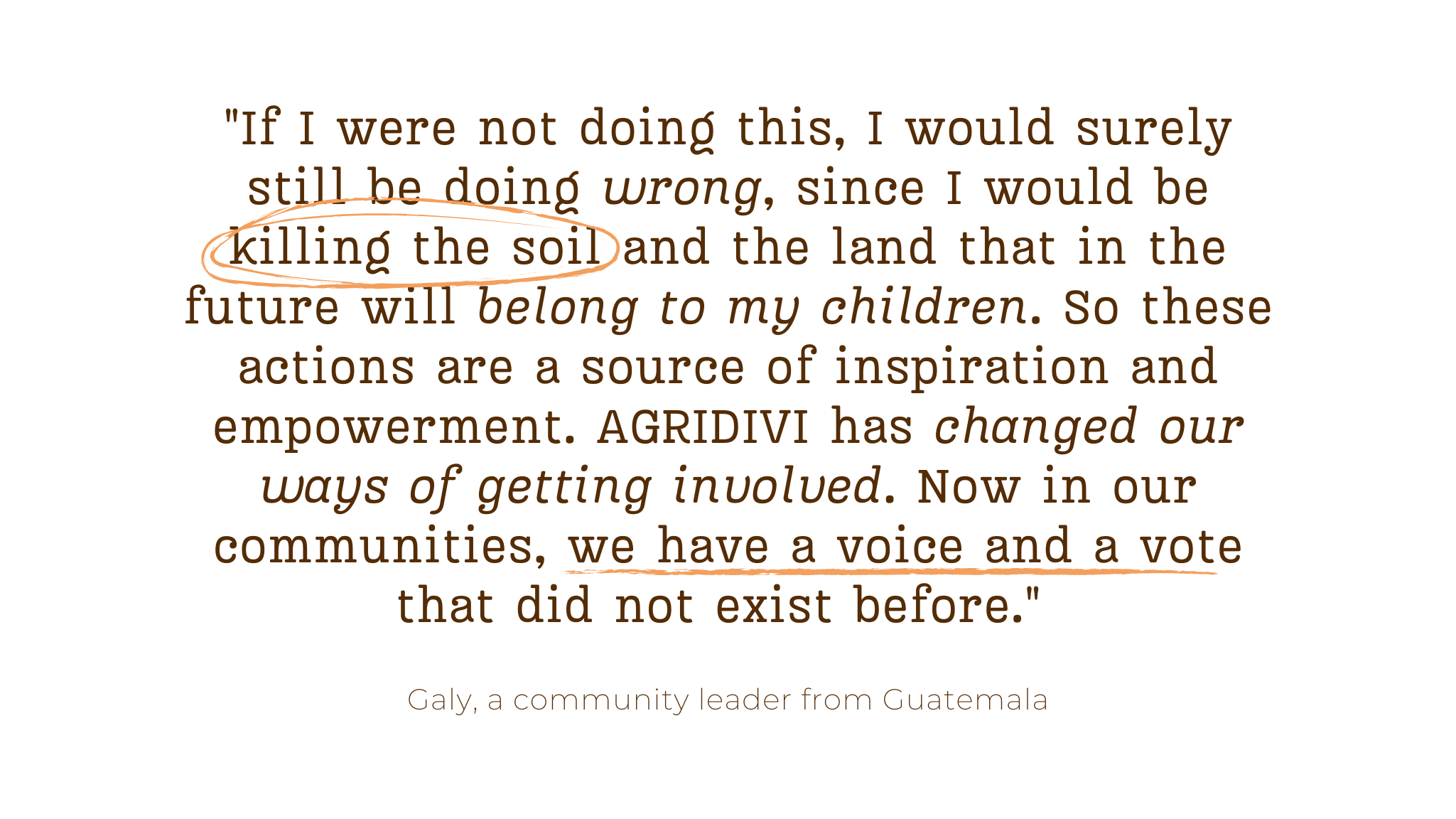
You can help farmers like Galy lead grassroots initiatives that promote sustainable agriculture, improve health, and empower marginalized women. Your donations provide training in the field and essential resources like access to water, helping smallholder farmers improve their lives and safeguard their families’ futures—on their own terms.
Help us continue this vital work. Donate today and be part of the solution.
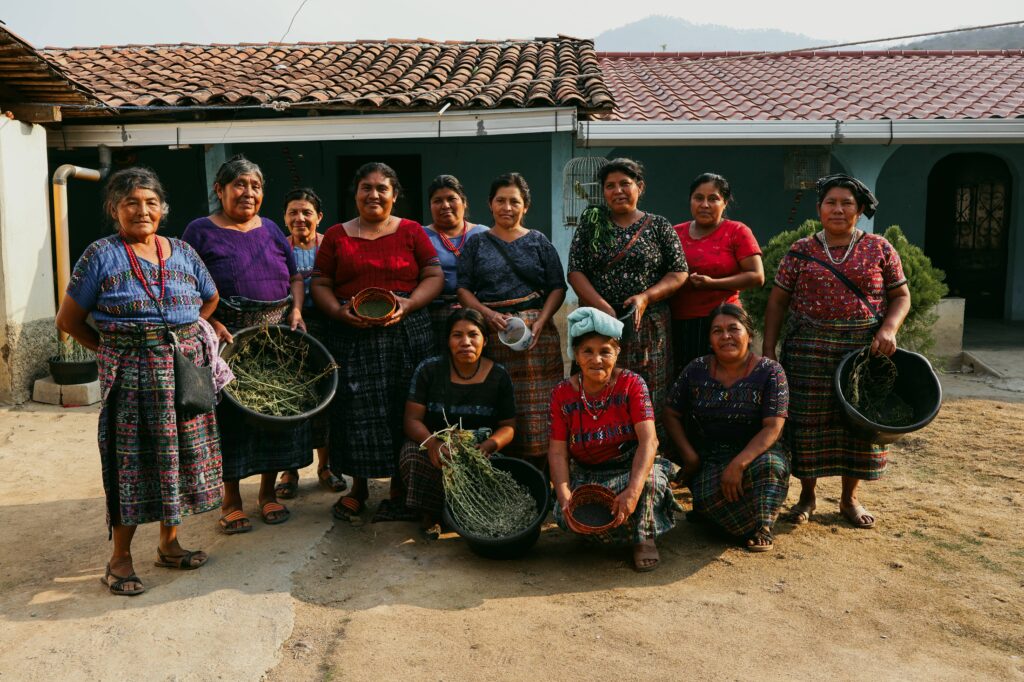
Invest in rural communities to spread real solutions
Your gift will directly impact smallholder farmers in the Global South and strengthen their capacity to build regenerative and equitable food and farming systems, safeguarding future generations’ rights to a fulfilling life.
Image credits: all pictures by Groundswell International. Repurposed map from Reuters.

